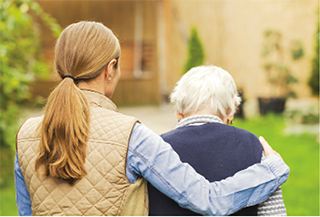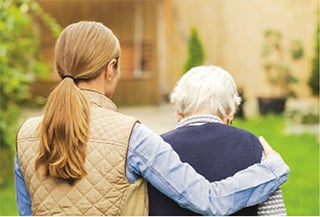
Injuries from slips and falls are far more dangerous to older people than anyone else. Unfortunately they are relatively common. The problem is that when older people fall and break their bones, they heal slowly or not at all. The risk of falling again is also increased.
A minor fall can easily mean a big life change for an older person. If a fall requires full-time home care or a move to a nursing home, there are many things to consider.
If you fall in a nursing home or nursing home, or if you fall outside, you can file a lawsuit.Now consider what the plaintiff has to prove Compensation for slips and falls or injuries.
prove dangerous
Generally speaking, in a slip and fall case, the plaintiff must show that there was a dangerous condition. The warning is the building owner knew or should have known that.
Owners are responsible for any reasonably foreseeable condition that occurs on their property. In other words, owners are expected to anticipate certain conditions and accommodate all types of people on the premises.
This includes things like:
- wet floor after water leak
- Inadequate lighting after lights are out
- broken walkways and railings
- Ladder or equipment left behind by staff
These types of situations present risks that can be predicted or confirmed fairly easily. Even minor negligence by the facility owner or their staff can result in serious injury.
If a person falls on the premises, elderly or otherwise, it may be grounds for facility liability lawsuits. Depending on how the injury occurred and the relationship between the plaintiff and the defendant, an injury attorney may also assert negligence.
Recovery of money in negligence cases
If a loved one is injured due to someone else’s negligence, you may be able to claim the following damages:
- Medical bills
- future care plan
- mental anguish
- body pain and suffering
For example, retirees may not recover lost wages, but the medical costs may be greater as older people experience the consequences of common injuries more severely.
However, to recover anything, Plaintiff must prove four elements of negligence:
- tariff
- violation
- Causal relationship
- harm
The circumstances of the injury determine these factors to some extent.
“Standard care” or “duty of care” varies by party and location. for example:
- Nursing care obligations for residents of special nursing homes are high
- Very low obligations of shopkeepers to pedestrians on sidewalks
Still, we all have a duty to be careful with others. Everyone should act as a reasonable person in the same or similar situations to prevent “reasonably foreseeable” injuries.
The plaintiff proves negligence and wins if he shows:
- breach of duty of care
- caused injury
- The injury caused “compensable damages” (e.g., medical expenses, etc.)
But the case is very complicated. Proving that a simple slip-up is someone else’s fault requires extensive experience in reading and understanding medical records, as well as familiarity with mathematical calculations.
consult a lawyer
If you have been injured, regardless of your age, consult an attorney. tell your story. Many personal injury attorneys will be happy to evaluate your case for a free or minimal fee.














